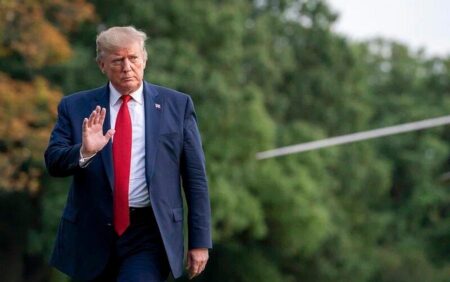U.S. rescinds Biden-era AI chip export controls, easing rules for allies and avoiding tech isolation concerns.

In a major policy reversal, the United States on Tuesday rescinded the Biden-era “AI diffusion rule” that would have restricted exports of advanced computing semiconductors to several countries, following strong opposition from international partners and tech firms.
The rule, originally set to take effect on May 15, aimed to prevent advanced chips from indirectly reaching China via third countries. It was introduced in January during the final days of President Joe Biden’s term, as part of broader efforts to restrict Beijing’s access to cutting-edge technology.
Under Secretary of Commerce for Industry and Security Jeffrey Kessler announced the rollback, criticising the previous administration’s policy as “ill-conceived and counterproductive.” He emphasised a new approach: “The Trump Administration will pursue a bold, inclusive strategy to share American AI technology with trusted foreign countries while keeping it out of the hands of our adversaries.”
The rescinded rule had proposed dividing global nations into three tiers. While Tier 1 allies like Japan and South Korea faced no restrictions, Tier 2 countries, including Mexico and Portugal, would have been limited in the volume of AI chips they could import. Many feared this would damage innovation, strain diplomatic ties, and push some nations closer to China for technological support.
The U.S. Commerce Department acknowledged these concerns, stating the rule risked relegating several partner nations to “second-tier status,” potentially undermining U.S. influence in global AI development.
Critics, including lawmakers and major chipmakers such as Nvidia and AMD, warned the cap could inadvertently boost China’s AI capabilities by encouraging international demand for Chinese alternatives. Both companies had actively lobbied against the measure and saw a rise in their stock prices last week when the Trump administration signalled a policy rethink.
While easing the export framework, the Commerce Department reaffirmed existing restrictions, cautioning that the use of Chinese firm Huawei’s Ascend chips — the most advanced in its lineup — would remain a violation of U.S. export laws. Officials also warned against allowing American AI chips to train Chinese models, citing national security risks.
The policy reversal marks a significant shift in the U.S. strategy to balance national security, economic leadership, and international collaboration in the race for AI supremacy.
Source: The Hindu











